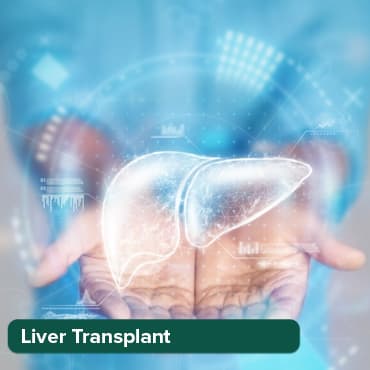
Facts You Need to Know About Liver Transplant
07 Jun, 2022
 Healthtrip Team
Healthtrip TeamOverview
When your liver ceases performing its functions properly, it is considered to be diseased. Alcoholism, hepatitis, non-alcoholic fatty liver, and liver cancer are all potential causes of liver damage. This damage causes scarring (cirrhosis) over time, which can lead to liver failure, a potentially fatal condition.
The demand for liver transplantation is increasing day by day with the increase in ailments related to the digestive system. That’s why here we’ve discussed a few facts that you need to know about liver transplants.
Transform Your Beauty, Boost Your Confidence
Find the right cosmetic procedure for your needs.

We specialize in a wide range of cosmetic procedures

When do you need to undergo a liver transplant?
Your doctor may recommend a liver transplant only if other treatments for liver illness aren't keeping a person alive.
You should consider a liver transplant as a treatment option if you’re suffering from long-term liver disease or if your liver fails quickly.
Cirrhosis is one of the most common reasons for liver transplants in the adult population. It causes damaged liver tissue where healthy liver tissues are replaced by damaged liver tissue. Cirrhosis can happen due to several causes, including:
- Abuse of alcohol
- chronic hepatitis B or hepatitis C.
- Nonalcoholic Fatty Liver Disease (NAFLD)
- Biliary atresia (neonatal liver condition)
- Metabolic problems
Also, Read - Why Should You Go For Liver Transplant In India?
What is a living donor liver transplantation?
A part of a healthy individual's liver (the donor) is removed and put into another person's liver (the recipient) to replace their unhealthy liver tissue during a living donor liver transplant. Over the next few months, both the donor's and recipient's livers will regenerate. Receiving a living donor transplant shortens a person's time on the national transplant waiting list.
How do the candidates for liver transplants get selected?
The first step is a referral from your doctor to a transplant clinic or centre where you will be evaluated by a team of specialists from many professions to determine if you are a viable candidate. Your evaluation will involve the following criteria:
Most popular procedures in India
Atrial septal defect
Upto 80% off
90% Rated
Satisfactory

Coronary Angiogram a
Upto 80% off
90% Rated
Satisfactory

Coronary Angiogram C
Upto 80% off
90% Rated
Satisfactory

Liver Transplant
Upto 80% off
90% Rated
Satisfactory

Total Hip Replacemen
Upto 80% off
90% Rated
Satisfactory

- You may have liver disease or another illness.
- mental and emotional well-being
- ability to follow the complicated medication regimen required following a transplant.
- chances of surviving the transplant procedure.
Pre-transplant evaluation appointments are typically four to five hours long.
How does the waiting list work?
If you meet the criteria for a liver transplant, you will be added to a national waiting list.
A Model of End-Stage Liver Disease (MELD) score determines where you are on the list. The score value is determined by the following tests, such as:
- Check your creatinine level, which indicates how well your kidneys are operating.
- Examine your international normalized ratio (INR), which measures how well your liver produces blood-clotting proteins.
Those with the highest scores are sicker and appear higher on the list. Regular blood tests are required to keep your MELD score and place it on the list up-to-date.
What happens when a donor becomes available?
Waiting for a liver transplant is a lengthy procedure, but if a match is found, surgery can be scheduled quickly. The liver can be obtained from a dead donor with a healthy liver. A donated liver is sometimes used for two recipients.
A living donor may be able to give a portion of their liver as well. The living donor, however, must be a good match in terms of blood type and other variables.
Also, Read - How Much Does Liver Transplant Costs in India?
Recovery from liver transplant:
A three-week hospital stay is required after a transplant, according to the National Institute of Diabetes and Digestive and Kidney Diseases. During this period, your doctor will assess the success of the liver transplant procedure and your need for home care.
It could take up to a year before you feel better.
How can we help with the treatment?
If you are in search of a liver transplant in India, we will serve as your guide throughout your treatment and will be physically present with you even before your treatment begins. The following will be provided to you:
- Opinions of expert physicians and surgeons
- Transparent communication
- Coordinated care
- Prior appointment with specialists
- Assistance with hospital formalities
- 24*7 availability
- Arrangements for travel
- Assistance for accommodation and healthy recovery
- Assistance in emergencies
Our success stories
We are dedicated to offering the highest quality health care to our patients. HealthTrip - a team of highly qualified and devoted health professionals that will be by your side from the beginning of your journey.





